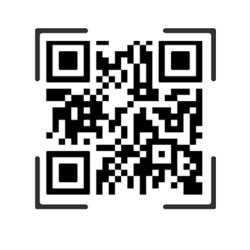
Conference overview
In 2024, the conference will celebrate and explore the transformative potential of diversity of thought within the engineering profession, seeking to uncover how this crucial aspect of diversity presents opportunities to foster inclusive cultures drive innovation.
The videos are divided into four parts:
- Part one: Welcome speech: Harnessing the Power of Diverse of Thought. Keynote: Diversity of thought. Panel discussion 1: Exploring cognitive diversity
- Part two: Panel discussion 2: Breaking bias and building understanding
- Part three: Table talks: Practical applications from attendees
- Part four: Micro talks: Innovation and positive outcomes. Closing remarks and reflection
Event Highlights:
The conference features a dynamic agenda with a focus on practicality and solutions-oriented discussions. Attendees can expect:
- Exploring diversity of thought: An exploration of the Thought Diversity Ecosystem, describing a dynamic and interconnected system of diverse ideas and perspectives and bringing in the discussion on how AI can contribute to diversity of thought. As a result, we hope to provide a practical framework for attendees to implement in their organisations which will enable them to consider the routes to incorporating different thoughts.
- Creating space for cognitive Diversity: The conference will explore the concept of cognitive diversity, including insights from neurodivergent engineers. It aims to shed light on how diverse thinking patterns can be integrated and supported within the workplace, fostering a culture of inclusivity.
- Breaking bias and building understanding: Thought diversity will be discussed as a strategy for mitigating cognitive biases that often affect homogeneous groups, resulting in fairer and more equitable decision-making processes. We will also discuss the potential negative impact of diversity of thought and explore opportunities to build a culture of tolerance.
- Driving innovation with diversity of thought:The conference will showcase real-world examples of how diversity of thought has driven innovation and positive outcomes in engineering. Attendees will learn how to leverage this diversity to address the pressing challenges our world faces today.
Speaker profiles
Host:
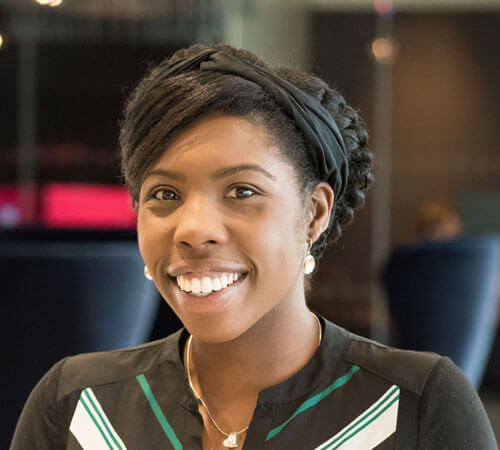
Rosa Morgan-Baker
Senior Manager for Diversity and Inclusion at the Royal Academy of Engineering.
Rosa leads the Academy’s work with industry to accelerate the implementation of diversity and inclusion good practice throughout engineering. Her career started in the education sector, supporting young people in developing their literacy and writing career development programmes. Moving to the charity sector, Rosa worked closely with hundreds of businesses across multiple sectors, providing consultancy and training on building inclusive practice across an organisation and championing social mobility.
Alongside her focus on diversity and inclusion, Rosa has specialised in strategic development and system change, leading on fundraising, partnership development and programme innovation as Director of Development of two social mobility organisations.
She continues to consult on fundraising and strategy development as Co-chair of the Fundraising Advisory Committee at The Cancer Awareness Trust.
Welcome:

Joanna Whiteman
Head of Diversity and Inclusion, Royal Academy of Engineering
Joanna leads the Academy’s work to accelerate diversity and inclusion throughout engineering. Joanna’s team works with engineering companies, academic institutions and professional bodies, providing evidence-based programming and rigorous research to support them and enable their good practices to reach the wider profession.
Joanna began her career as an employment lawyer, advising companies across the UK as they sought to comply with the Equality Act 2010. She then moved into the charitable sector and, as Head of Litigation and then Co-Director at the Equal Rights Trust, she supported global partners to use the law to advance equality.
Joanna has advised, trained and guided hundreds of organisations as they embed inclusive practices in their own work and continue their work advocating on behalf of underrepresented communities. She has also worked closely with organisations on developing equality policies and advocating for relevant legal reform at the national and international level.
Keynote speaker:
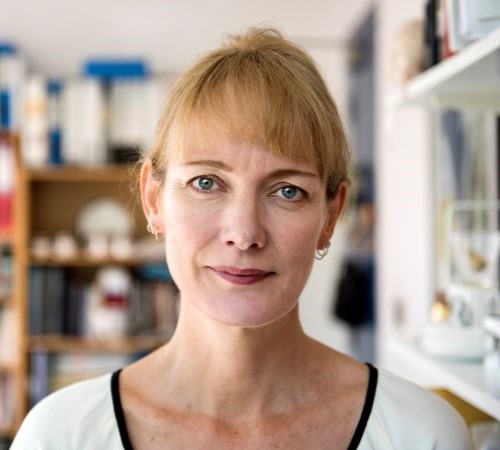
Dr Francesca Happé, CBE FMedSci,
Professor of Cognitive Neuroscience, Kings College London
Francesca Happé CBE FMedSci is Professor of Cognitive Neuroscience at the Institute of Psychiatry, Psychology and Neuroscience, King’s College London. Francesca’s research focuses on autism, and she has also explored social cognition and ‘mentalising’ difficulties. She is actively engaged in studies of abilities and assets in autism, and their relation to detail-focused cognitive style. Some of her recent work focuses on mental health on the autism spectrum, and under-researched groups including women and the elderly. Francesca leads the ReSpect Lab, was a past President of the International Society for Autism Research, and has received the British Psychological Society Spearman Medal and President’s Award, Experimental Psychology Society Prize, and Royal Society Rosalind Franklin Award. She is co-author/editor of two recent books.
Session 1 - Exploring Cognitive Diversity
Panel discussion and Q&A
Panel Chair:

Luke Logan, FREng
Director, Luke Logan Consulting Ltd
Luke Logan is a seasoned business leader with over three decades of senior executive experience at Rolls-Royce, BAE Systems, and Weir Group. Now, as an independent advisor and consultant, Luke applies his extensive experience to support the growth and development of his clients' businesses. He is deeply committed to diversity & inclusion, innovation, and aligning engineering professionalism with business success and sustainability. Luke values the importance of cognitive diversity in engineering, continuously exploring how diverse perspectives contribute to innovation, business success, and sustainable outcomes. He advocates for inclusive practices and thoughtful recruitment to nurture environments where cognitive diversity can flourish.
Panellists:
Dr Francesca Happé
Professor of Cognitive Neuroscience, Kings College London
Francesca Happé CBE FMedSci is Professor of Cognitive Neuroscience at the Institute of Psychiatry, Psychology and Neuroscience, King’s College London. Francesca’s research focuses on autism, and she has also explored social cognition and ‘mentalising’ difficulties. She is actively engaged in studies of abilities and assets in autism, and their relation to detail-focused cognitive style. Some of her recent work focuses on mental health on the autism spectrum, and under-researched groups including women and the elderly. Francesca leads the ReSpect Lab, was a past President of the International Society for Autism Research, and has received the British Psychological Society Spearman Medal and President’s Award, Experimental Psychology Society Prize, and Royal Society Rosalind Franklin Award. She is co-author/editor of two recent books.

Robert Mitchell
Head of Engineering, ITP Aero UK
Rob is the Head of Engineering for ITP Aero UK and also the Head of Engineering for ITP’s global Installations Operating Unit with teams in the UK, Spain, Mexico and India. He has over 20 years of experience in aerospace and nuclear sectors. He has a PhD in aerospace materials from the University of Cambridge and a first class masters in mechanical engineering from the University of Leicester. He joined Rolls-Royce in 2004. In 2017 he was appointed Global Chief of Complex Fabrications and in 2018 Engineering & Technology Executive for Installations Business Unit. He joined ITP in 2021 having led the separation of ITP from Rolls-Royce. He was diagnosed autistic in 2022, which has explained a lot of his life so far but does not define him.
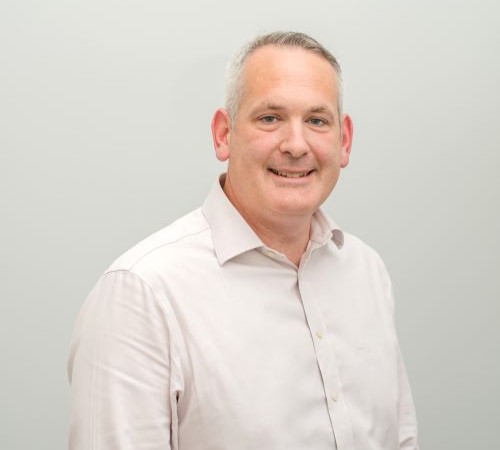
Rosie Brighty
Divergent Consulting
Rosie has a background in education and six years of design engineering experience, along with being dyslexic, dyspraxic and having ADHD. Her experiences have provided her with an academic understanding of neurodiversity and an understanding of business needs within the private sector. Having been discriminated against at work in the past for her neurotype, Rosie’s mission is to help make sure no-one has to feel the way she did, and that everyone can bring their best selves to work. Rosie uses neuro-inclusive practices to drive diversity and inclusion, not just in terms of neurodiversity, but other protected characteristics too. Her passion is in supporting workplaces, to enable staff to feel safe to be themselves and allow creativity to flourish.
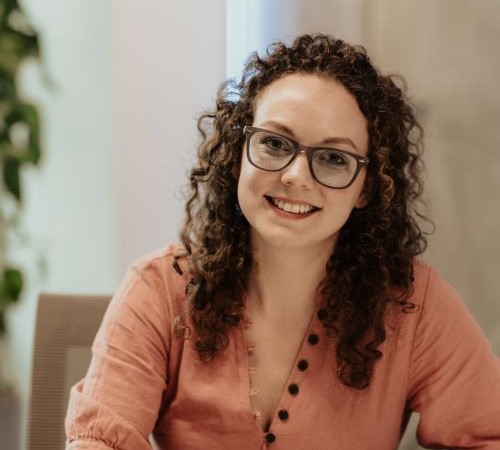
Moji Banjo
Ramboll
Moji Banjo is a civil and environmental engineer at Ramboll UK, working to drive Ramboll’s psychological safety journey. Moji was diagnosed with autism and dyslexia in her mid-20s after struggling with anxiety and perfectionistic tendencies. Since her diagnosis, she has delivered internal company talks on effective and inclusive communication to help other neurodivergent people. She is running the London Marathon to fundraise for the National Autistic Society and educate others on how autism has affected her life. Moji is a highly collaborative, creative, and social individual who is passionate about improving the quality of life for other neurodiverse individuals.
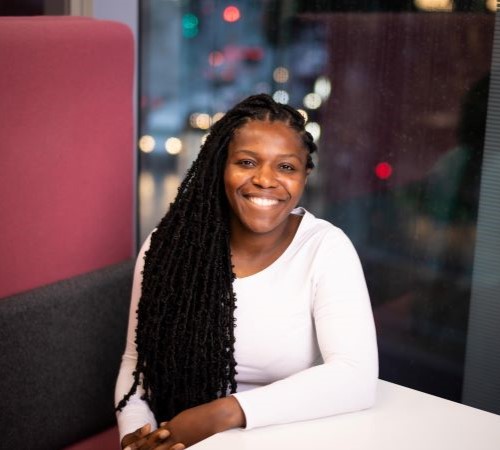
Session 2 - Breaking Bias and Building Understanding
Panel discussion and Q&A
Panel Chair:
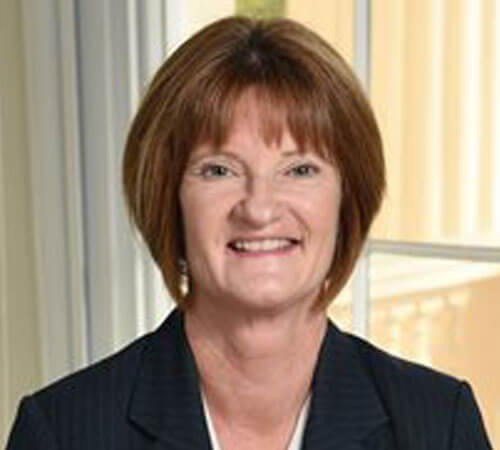
Dame Sue Gray DBE CB FREng,
Former Director General of the Defence Safety Authority and Royal Academy of Engineering Trustee
Dame Sue Gray was Director General (CEO) of the Defence Safety Authority from March 2019 to January 2022. She led the regulation and assurance of military equipment and activity across air, land, sea, nuclear, munitions, medical, fire, and the environment. Previously, she was Air Officer Commanding 38 Group Royal Air Force (RAF) between 2016 and 2019. In this role, she led over 2,000 personnel supporting UK military deployments worldwide. She was also Head of the RAF engineer profession, recruiting, developing and maintaining safe working practices for over 15,000 technical staff, and responsible for developing the strategic plan for the RAF’s estate. Previous appointments include operational tours in Northern Ireland and Iraq, followed by a series of progressively senior roles in defence equipment and support. As a lifelong STEM advocate and mentor, she is also a Trustee of the Royal Academy of Engineering. Her other Interests include competitive equitation, holiday skiing, fair weather walking, and travel.
Panellists
Pareisse Wilson
Inclusive Design Strategy Lead, Motion Spot
Pareisse is an inclusive design and change management and is currently the Inclusive Design Strategy Lead at Motionspot. This inclusive design consultancy aims to transform spaces and lives through beautifully designed, inclusive environments that deliver independence and ease of use for anyone regardless of their disability, gender, age, and other human characteristics. Pareisse has recently been appointed as a member of the prestigious RIBA Awards 2024 jury team and was nominated for the Disability Power 100 List, Shaw Trust 2021 and 2022 for her work leading the development of the ‘Inclusive Design Overlay to the RIBA Plan of Work’, a new industry guidance outlining how to embed inclusive design into projects for clients, project managers, construction, design and asset management teams.
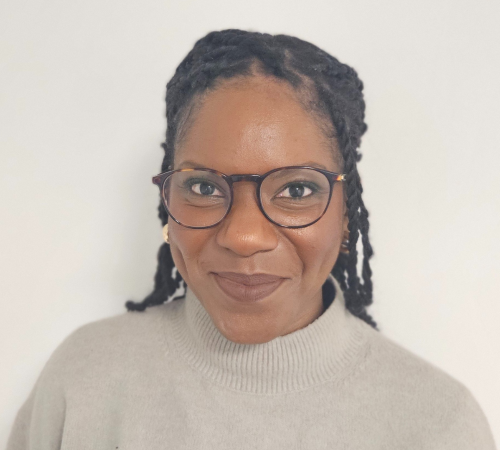
Neil Smith
Inclusive Design Lead for HS2
Neil is the Inclusive Design Lead for HS2 Ltd and has over 20 years’ experience in delivering inclusive and accessible environments. He is responsible for defining and integrating the inclusive design requirements for HS2, ensuring these are embedded across the programme. HS2 is the first infrastructure company to be awarded the ‘Inclusive Environments Recognition’ certification at organisational level by the Construction Industry Council. Neil was the author of the Olympic Delivery Authority’s ‘Inclusive Design Standards’ for London 2012 Olympic and Paralympic Games as well the current Inclusive Design Standards for the Legacy Development. Neil sits on British Standards Committee B/559, which is responsible for the BS 8300 Design of an Accessible and Inclusive Environment.
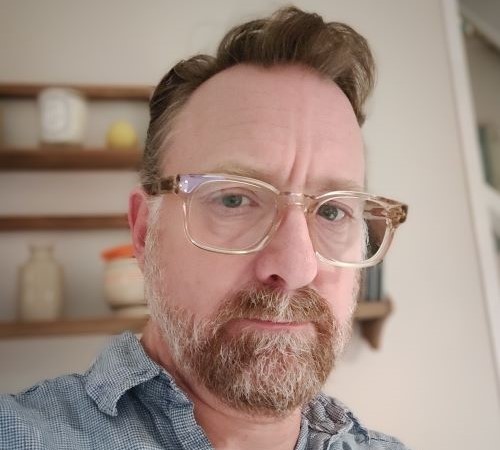
Natasha Whitehurst, Global Inclusion Lead, Rolls Royce
Currently leading inclusion and diversity globally at Rolls-Royce, Natasha is an experienced speaker, facilitator and training professional. She uses her lived experience (endometriosis, ADHD and mental health) to help business leaders develop their own inclusive behaviours. Natasha is co-founder and co-host of ‘D&I Spy: Inclusion Uncovered’. This weekly podcast takes inclusion back to basics, tackling often unspoken topics with a number of high-profile guests from the entertainment, sport and business worlds. Natasha is experienced at working with people and talent teams to establish more inclusive recruitment practices, and attracting diverse talent, which earned her a coveted spot on the Global Diversity List 2020

Lesley Lawrenson, MEng CEng IMechE, MBDA Systems
Lesley joined MBDA in 2001 as an undergraduate and has been with the Company ever since, completing a Master’s degree in Mechanical Engineering at the University of Sheffield as part of her early career programme. Following multiple Project roles in mechanical design and structural analysis, Lesley joined the Joint MBDA-MOD Portfolio Management Team, working to implement changes across both organisations to support the Complex Weapons Portfolio. Improving diversity and inclusion is a particular personal passion, rooted from her early experience in the male-dominated world of Defense engineering and her desire to support greater inclusivity in the future, which most recently has included mentoring with Women in Defence.
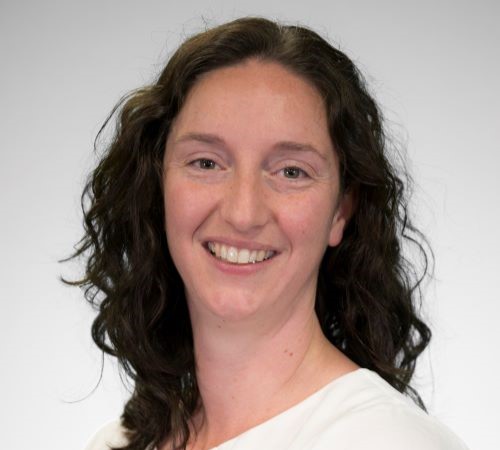
Session 3 - Microtalks: Innovation and positive outcomes
Presentation and Q&A
Panel Chair:
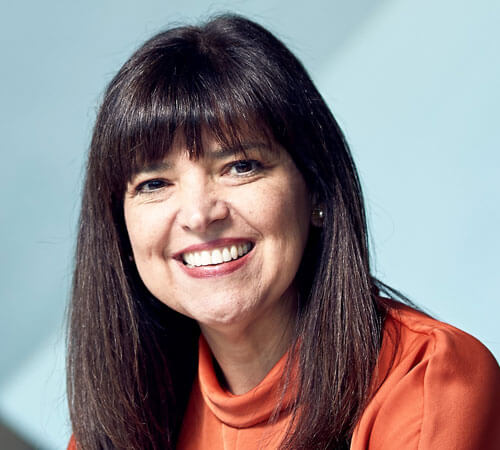
Aleida Rios FREng FEI ChEng
Senior Vice-President, bp, D&I Committee Chair, Royal Academy of Engineering
Aleida leads the centre of discipline engineering expertise which houses the most senior engineers and engineering technical authorities in bp. She is accountable for enabling bp’s energy transition to deliver on resilient hydrocarbons and scale up of renewables businesses through engineering solutions. Aleida chairs the heads of engineering forum which represents the company’s more than 3000 practicing discipline engineers. Prior to her current role, Aleida served as Vice President of Operations for the Gulf of Mexico and Vice President for bp’s Lower 48 business.
Panellists
Andrew Aylesbury
Co-founder, Duku
After graduating from Coventry University with an MDes in transport and product, Andrew gained years of experience in product design consultancy before co-founding Duku in 2013. He has since managed over 400 product design projects. With extensive experience in inclusive design, Andrew has recently worked on projects to address accessibility within electric vehicle charging infrastructure funded by Innovate UK. He has taken a leading role in many funded consortia involving multiple stakeholders, as well continuing to help start-up and entrepreneurs to bring their ideas to life.

Jenny McLaughlin
Project manager, Inclusion as Standard, Heathrow Airport
Jenny McLaughlin has worked within the airport industry for over 20 years. She has delivered a number of business changes, from a new aircraft de-icing process, to building a remote coaching gate in the middle of a live terminal. Jenny is dyslexic and has ADHD and believes that “the way that my brain is wired differently is an asset”. She is a speaker at a number of industry events on ‘Systematic Inclusion’, bringing to life the criticality of accessibility if we are to truly ‘Build Back Equitable’. This is most evident in being a key player in creation of RIBA Inclusive Design Overlay published earlier this year.
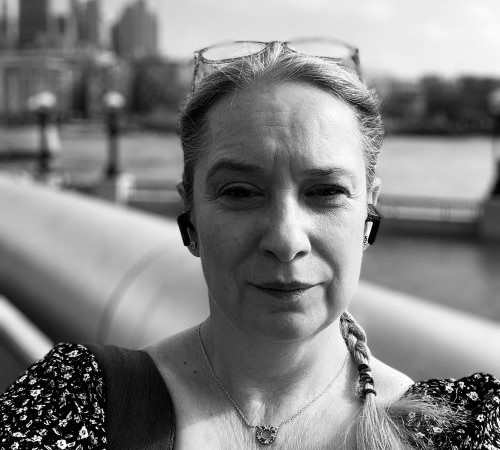
Martin Scragg
Project manager, Technical lead, Stantec
Martin Scragg is an accomplished civil engineer and project technical leader at Stantec, a highly reputable global firm that provides engineering and design solutions for various industries. With over 20 years of experience working in engineering, Martin has led a diverse range of complex projects within the water industry, including clean water, wastewater, and water networks. At Stantec, Martin is also the chair of the Neurodiversity UK Employee Resource Group (ERG), which is dedicated to supporting and raising awareness for neurodivergent colleagues and their families. As a neurodivergent individual, Martin is passionate about promoting neurodiversity and has given numerous presentations to colleagues to increase awareness and understanding of neurodiversity.
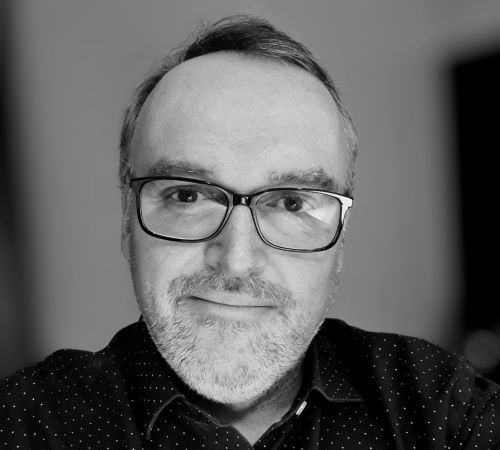
Dr Elizabeth Ratcliffe
Senior Lecturer in Biological Engineering, Loughborough University
Elizabeth leads Loughborough’s Inclusive Engineering Excellence Hub (IEEH) funded by the Royal Academy of Engineering and Vice Chancellor’s Research Cluster in Inclusive Engineering (2023 to 2028). These initiatives aim to develop knowledge in critical gaps in inclusivity in engineering and develop future leaders with expertise in EDI practices within engineering education, research, and technology development. Elizabeth’s background includes leading the establishment of Loughborough’s undergraduate bioengineering programmes (2017 to 2022) stemming from her expertise in combining biological engineering, bioprocessing, and manufacturing science to tackle challenges in healthcare applications. Her experience includes leading projects within the EPSRC National Centre for Innovative Manufacturing in Regenerative Medicine (2010 to 2015) and EPSRC/MRC Centre for Doctoral Training in Regenerative Medicine (2014 to 2024).
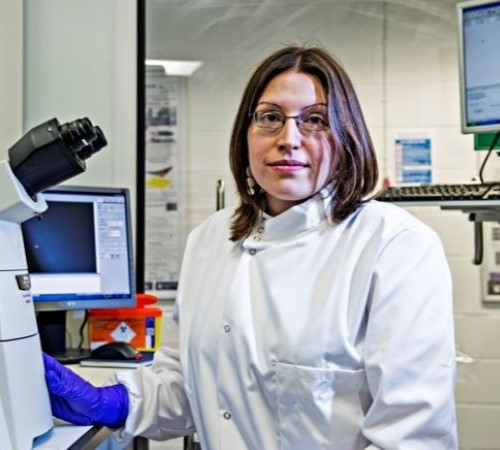
Closing Remarks
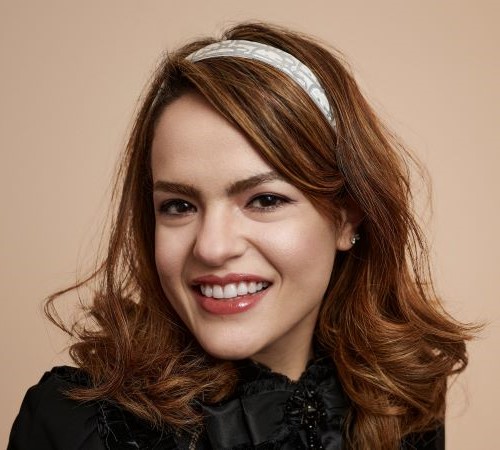
Larissa Suzuki
AI and Space Engineer, University College London and NASA Jet Propulsion Laboratory
Professor Larissa Suzuki a Visiting Researcher at NASA, and an Honorary Associate Professor in the Computer Science department at UCL, and has been working in industry for over 20 years. Larissa is an expert in artificial intelligence, and has worked to engineer AI and Machine learning solutions across space science, healthcare, finance and smart cities.
Exhibition
"Inclusive Innovation" is an exploration of products that increase inclusion, featuring a dynamic array of inventions and designs. Our exhibition seeks to inspire and educate visitors on the power of innovation in enhancing the lives of people of all abilities, backgrounds, and ages. Each product featured in this exhibition has been carefully selected for its remarkable contribution to fostering a more inclusive society.
The exhibition will showcase the transformative power of products designed with inclusivity in mind.
Exhibitors and related content
Defankle Innovation Limited
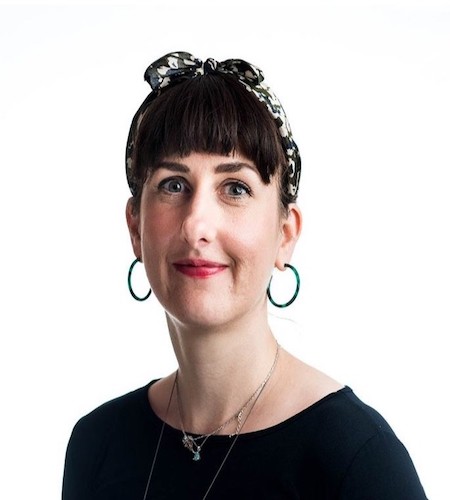
Abigail Hird
Innovation name: Defankle Inclusive Innovation Cards
What does your innovation do?
Embrace diverse perspectives and unlock the power of collective creativity. This card set, designed to be used by individuals, in-house teams or in larger facilitated workshops, is packed with real-world examples, actionable tools, and thought-provoking prompts to guide you towards truly inclusive innovation practices.
What problem(s) does your innovation solve?
Inadvertently excluding or disadvantaging customers and under-delivering to substantial market segments can be fatal and makes no financial sense. It’s also completely avoidable through the understanding and application of inclusive design techniques. Inclusive innovation opens new market possibilities and unlocks depth of insight into customer pain points.
How have you incorporated inclusion within the design of your innovation?
The inclusive innovation cards incorporate cases studies that highlight opportunities for inclusive innovation, methods to support inclusive innovation and prompts to encourage high-quality thinking and discussion. The cards have been designed to be as inclusive as possible, with QR codes linking to videos that describe each card.
.
Divergent consulting

Rosie Brighty
Divergent Consulting
What does your innovation do?
Divergent Consulting is made up of two neurodivergent sisters who "get it" and want to make the world of work better for all brains. They are Rosie, the former teacher and engineer; and Becca, the occupational psychologist.
They know the way the world currently works is designed to suit the neurotypical brain. They are here to help change that for your company.
They offer everything from one-off workshops, just to get the conversation started, all the way to in-depth consultation and personal coaching.
What problem(s) does your innovation solve?
Neurodivergent people often face challenges in the workplace related to communication, sensory overload and executive functioning. Divergent Consulting supports neurodivergent employees feel supported in the work place. Divergent consulting offers consulting, training, coaching and needs assessments to understand what is best for your company.
It is a huge benefit to a company as it increases productivity and decreases staff turnover, absenteeism and presenteeism (also it's the law).
How have you incorporated inclusion within the design of your innovation?
Divergent Consulting supports companies in making the most of the brains in their workforce, through education, coaching, consultation and workplace needs assessments. It was also founded by neurodivergents so it has evolved from lived experience.
Duku

Andrew Aylesbury
Innovation Name: Accessible EV Charger
What does your innovation do?
Our innovation will allow all drivers, including those with disabilities both hidden and visible, to effortlessly charge an EV. The technology aims to be the first charging hardware to fully meet BSI PAS1899 inclusivity guidelines and set the industry standard for accessible design.
What problem(s) does your innovation solve?
Current public charge points often feature poor user interfaces, obstructions around the base and awkward, heavy charge cables. These present barriers to drivers who may use walking aids or have hidden disabilities. Our design overcomes these barriers by automating the process and considering the user experience for all drivers.
How have you incorporated inclusion within the design of your innovation?
The design was developed in collaboration with disabled drivers from the outset to pinpoint areas to address and improve. This steered all the design decisions and at times created technical difficulties. However, it was critical to improving the process, for example by providing a motorised cable operable by one hand and user instructions that considered hidden disabilities. This was proven by live trials to validate the design.
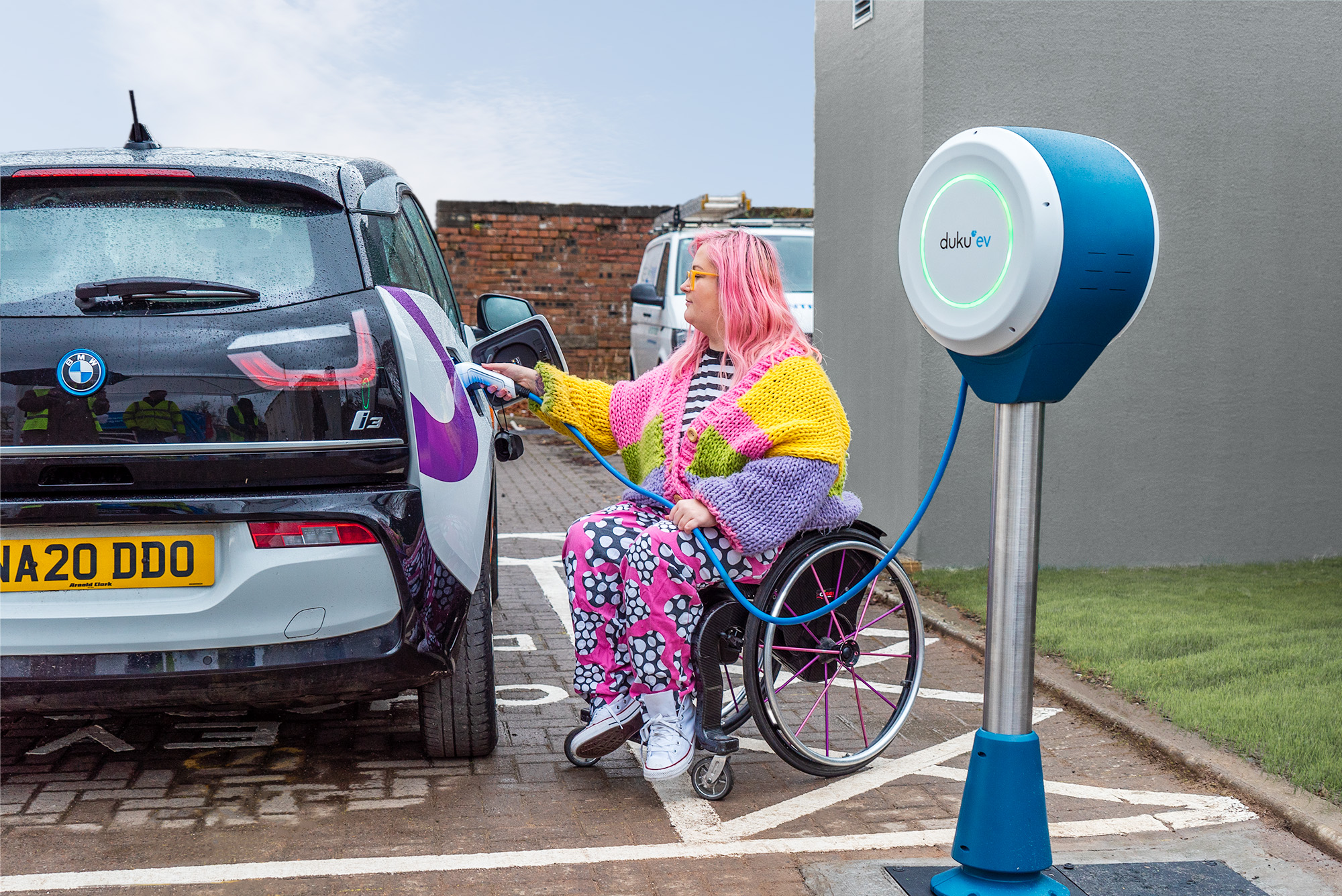
Goodmine
Nikki Gaddo
Innovation Name: GoodMine
What does your innovation do?
GoodMine, a dynamic female-led early-stage tech startup, is building a data platform. Our mission is to digitally unite owners of preloved items with the repair and reuse sector. Why? To elongate product lifespans, unlock hidden value, and curb landfill waste. Join us in reshaping the way we cherish our belongings!
What problem(s) does your innovation solve?
Consumer products are easy to buy but handling them responsibly can be challenging. While strides have been made in understanding a product's beginnings (from resources to purchase) and ending (as waste), what about the in-between? Repair and reuse are often left out. We're adding those chapters back into a product's life story.
How have you incorporated inclusion within the design of your innovation?
We're tackling a significant issue: how can we promote the reuse and repair of products when it's not a default responsibility of owning them? This challenge is deeply rooted in longstanding habits and flaws within our established systems. Solving it requires a collective effort. Collaboration across the supply chain is crucial, alongside empowering individuals to change their behaviours.
Our innovative approach is shaped by insights gathered from everyone involved in the lifecycle of consumer products—designers, builders, owners, users, maintainers, monitors, and disposers. By embracing diverse perspectives, our innovation is finely tuned to foster inclusive change within the intricate landscape of product lifecycle management. We welcome input from all stakeholders to make a positive impact in this space.
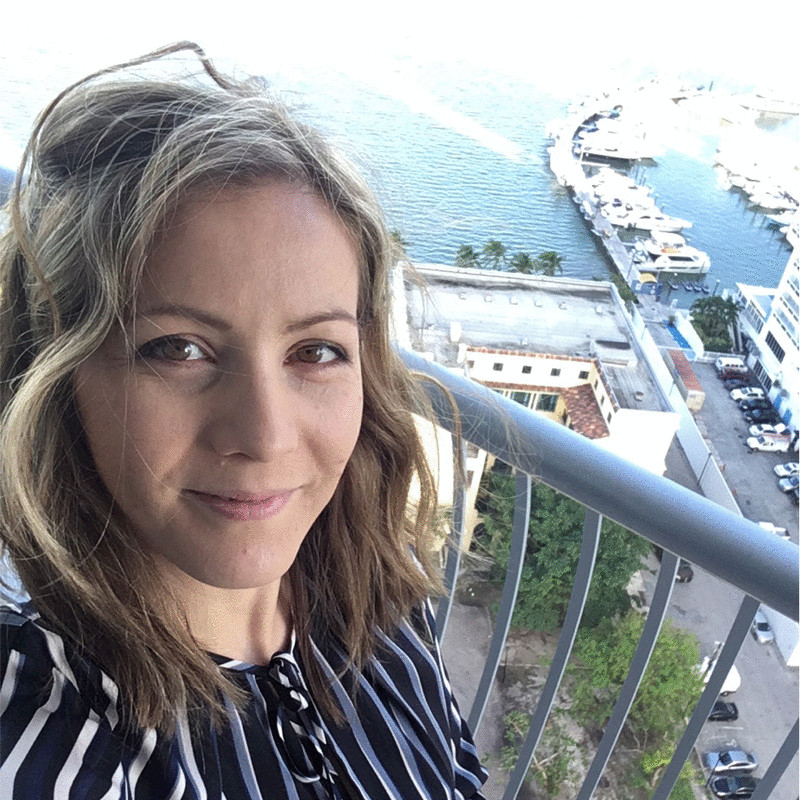
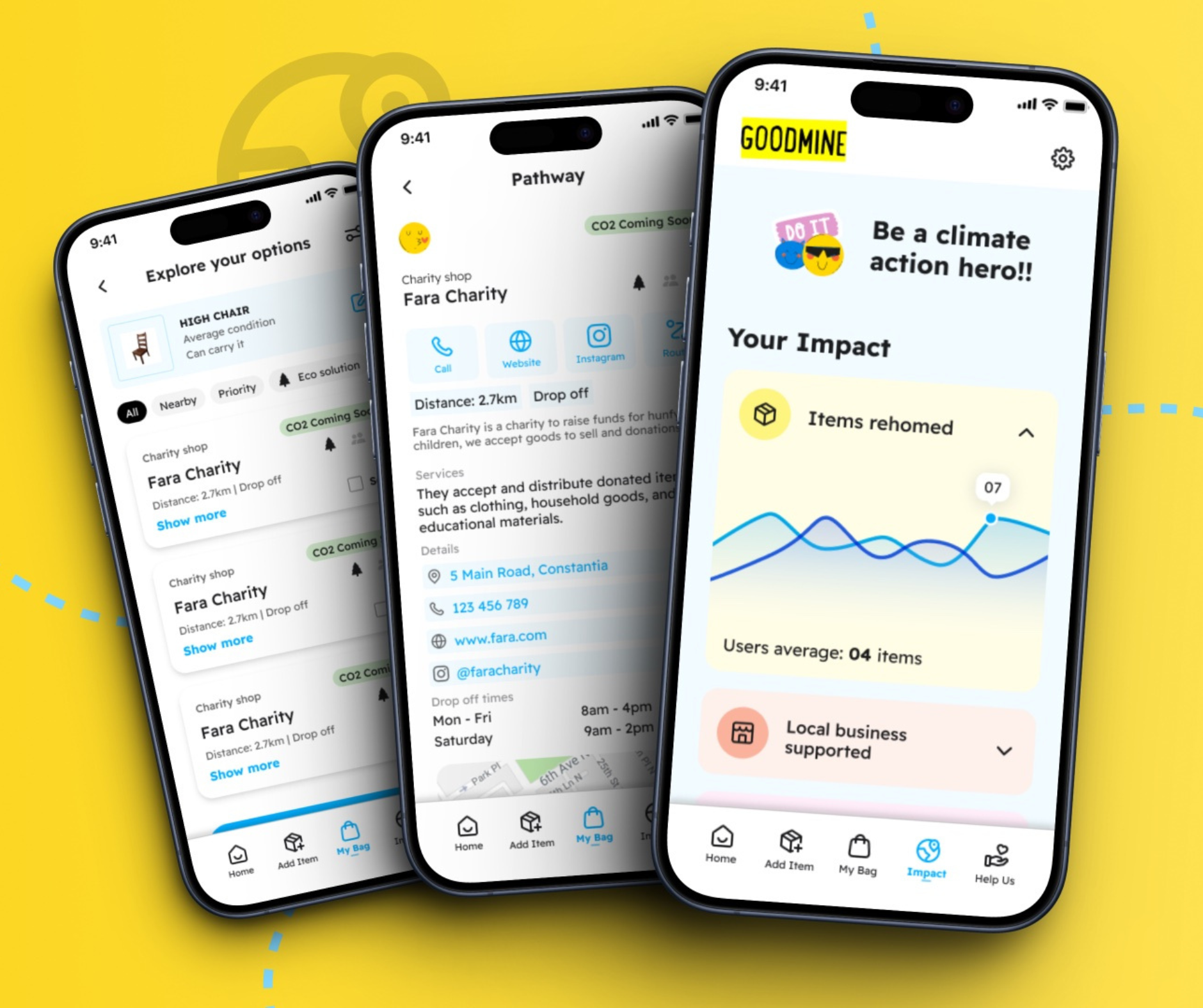
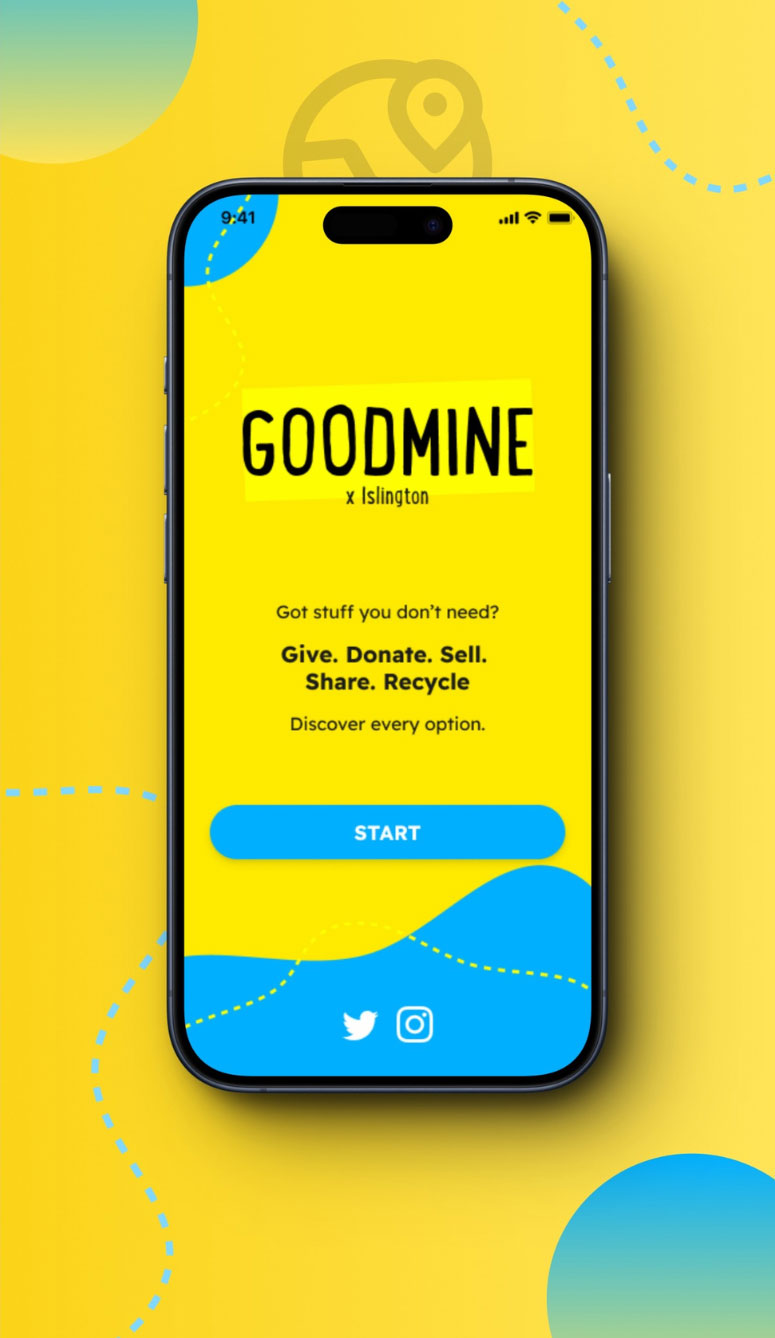
Neurometry Ltd
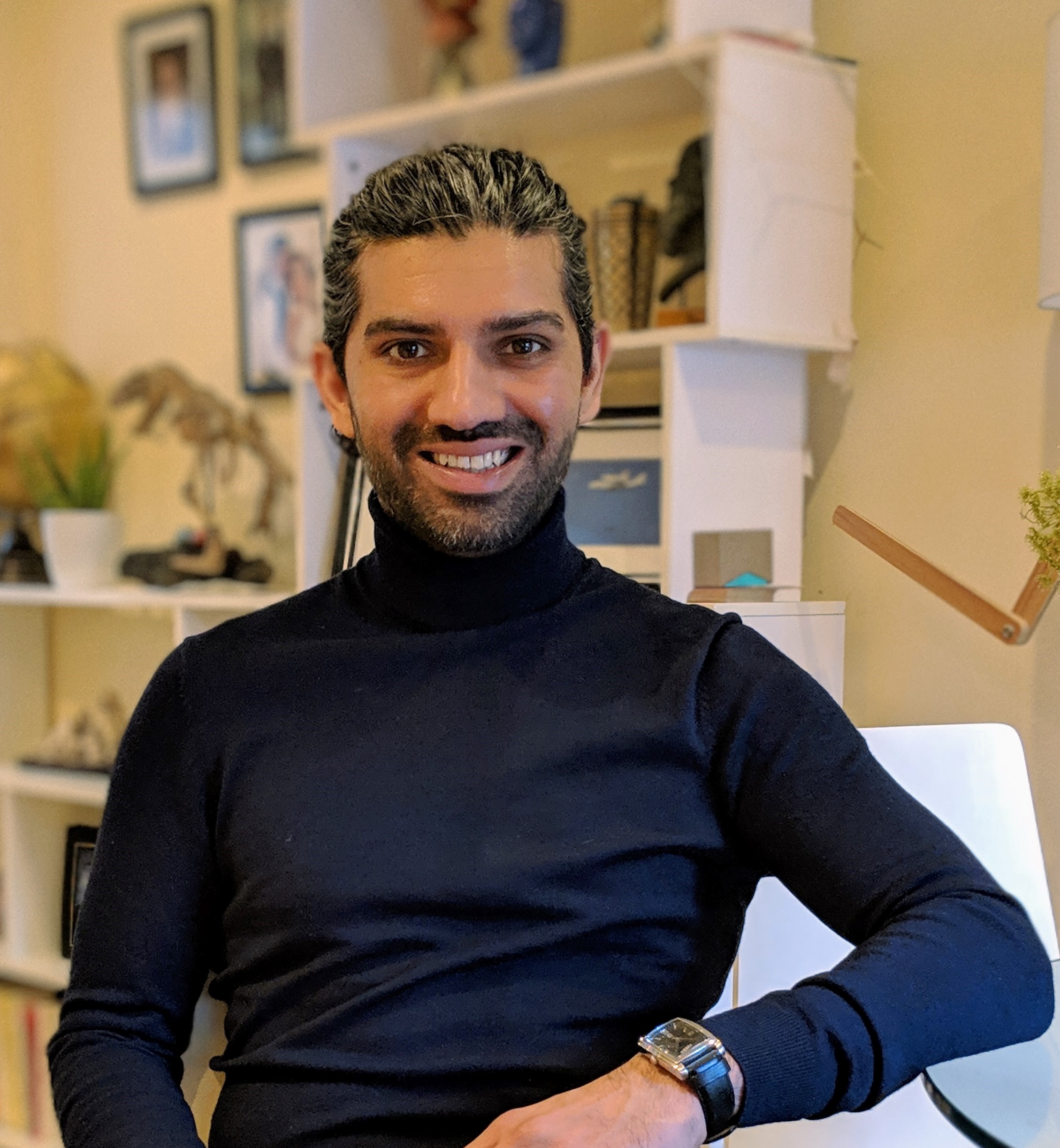
Omair Ahmed
Innovation Name: Neurometry Care
What problem(s) does your innovation solve?
Neurometry is creating early interventions for neural and neurodevelopmental disorders. We biomedically harness gaming and assistive devices with software-based visualization to enable remote assessment, rehab and care. Our aim is to address critically unmet medical needs for neurological health, while also making the process fun.
How have you incorporated inclusion within the design of your innovation?
Neurometry Care delivers digitally enabled care. Digital intervention improves inclusivity and accessibility of interventions by reaching individuals who may struggle to attend face-to-face appointments or are reluctant due to sociodemographic factors. Individuals and assisted living staff can access Neurometry Care immediately, work through interventions at their convenience and receive targeted and customised input based on their difficulties, allowing specialists to provide accessible person-centred care.
Our design philosophy, using game trials, not only addresses lack of sensitivity In ongoing evaluations over timebut also cultural and economic bias embedded in language-based assessments. We’ve placed emphasis on accessibility features such as colour blindness, visual and motor impairments, and barrier to entry on cost with (old) device compatibility. We strive to make our technology as inclusive as possible.
Sensory Design & Technology Ltd
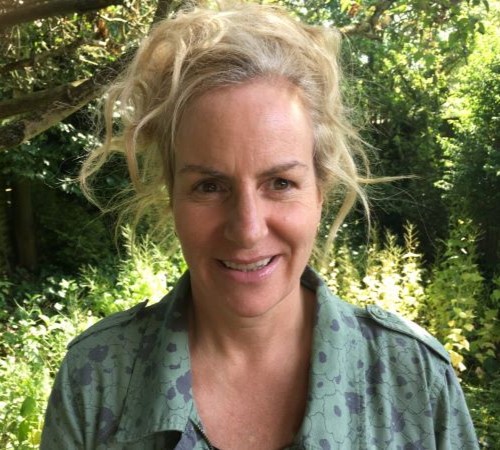
Dr Jenny Tillotson
Innovation Name: eScent
What does your innovation do?
eScent is developing a wearable, context-driven AI-powered scent intervention to treat anxiety. It is delivered once an intelligent system detects an increase in anxiety-related biomarkers. eScent creates a localised “Scent Bubble®” effect, using the evidence-based effects of essential oils to calm the wearer. The aim is to reduce medication dependency or to boost the effects of CBT.
What problem(s) does your innovation solve?
8 million people in the UK are experiencing an anxiety disorder. Anxiety is increasing but the tools to manage it are not. People have no desire to take long-term medication. This is the usual treatment but can leave patients with unpleasant withdrawal symptoms including sweating, nausea, insomnia, and worsened anxiety. Better solutions are urgently needed.
How have you incorporated inclusion within the design of your innovation?
Dr Jenny Tillotson is a neurodivergent inventor, designer, and the founder of eScent. She has worked in EDI for over 14 years. Jenny brings transferable skills as a “lived experience” designer who has published in both psychiatry and fashion and textile journals. This validates her eScent research and innovation and bridges the gap between biosciences and the creative industries.
Our anxiety-alleviating product is focused on inclusion and considers EDI from the core of the design process. eScent is creating a space for the neurodiverse community which fosters and nurtures responsible innovation and ethos and puts people and planet first. eScent actively empowers and supports underrepresented neurodiverse talent. We are passionate about improving access and support, particularly for people with ADHD. Our go-to-market plan involves patients/customers participating in the co-creation of eScent to ensure it remains inclusive.
Secure Choice Cybersecurity t/a ND Axon Limited
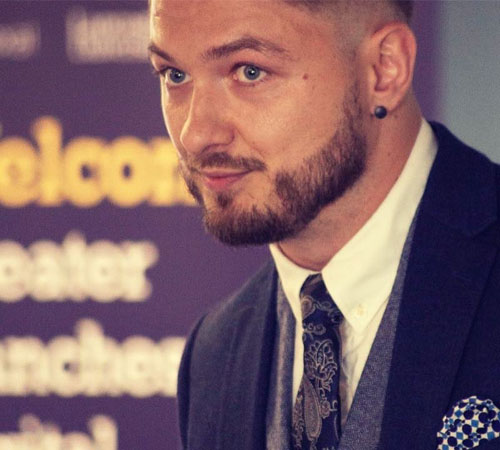
Michael Jakubiak
Innovation Name: ND Axon – Unleash Human Potential
What does your innovation do?
Improving neurodiversity landscape. We are determined to revolutionise the diagnostic process for Autism, ADHD, and Dyslexia, cutting the average waiting time from 7 years to 0 and by doing this giving back 1,625,000 hours to NHS and doctors.
Additionally, we aim to develop a set of inclusive tools, that provide the motor for employers to effectively hire and retain neurodivergent individuals and give neurodivergent talent tools to get into and stay in meaningful employment.
What problem(s) does your innovation solve?
ND Axon is developing an inclusive robot in partnership with the University of Manchester that will be able to diagnose conditions such as autism, ADHD, and dyslexia without any patient input and without assistance of a doctor. It will do this using AI, machine learning, and our proprietary large language models. The robot will also be able to recruit both neurodivergent and neurotypical individuals and assess their neurodivergent status based on available information such as pictures or CVs. Together, we are conducting extensive research to achieve our goal of improving the neurodiversity landscape and enhancing national security in the UK and then globally.
How have you incorporated inclusion within the design of your innovation?
We are developing an inclusive robot, which will be able to hire, retain and diagnose neurodivergent talent. Our Employment Passport, which is part of the robot, is focused on talents, strengths and what’s needed to hire and retain the individual.
The Honeycomb Works
Melissa Sabella
Founder and CEO, The Honeycomb Works
Innovation Name: Culture+
What does your innovation do?
Your culture needs to be built on a solid foundation supported by data that delivers actionable insights. Culture+ will gather data on the specific behaviours present (or not) in your organisation, identifying your biggest areas of risk and highlighting inequitable treatment while providing a valuable personal development tool for your people.
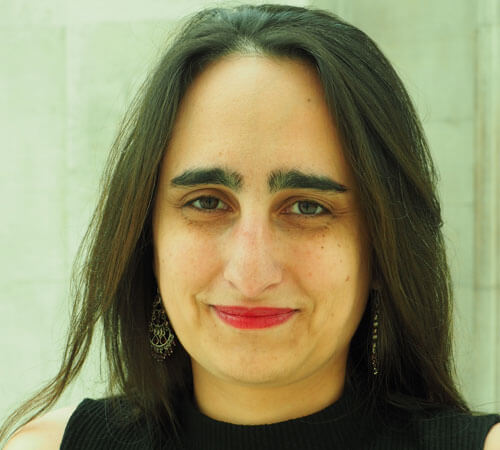
What problem(s) does your innovation solve?
You need to support your people and build a culture that promotes inclusion and innovation, woven into your day to day. Culture+ gives you a specialised roadmap guiding you on exactly what you need to do at the stage you are at. It’s pragmatic but as ambitious as you are.
How have you incorporated inclusion within the design of your innovation?
Every behaviour in Culture+ is based on evidence – they are the daily habits proven create inclusive and innovative cultures. The behaviours are observable and simple – they can be done on a daily basis without being overwhelming, making it simple for people to begin acting inclusively. The platform is designed to help remove barriers to an inclusive workplace. Inclusion should not be a separate siloed initiative. Culture+ offers a specialised roadmap and the critical resources (including processes, policies and checklists) for organisations to develop diverse, equitable and inclusive cultures.
Loughborough University

Dr Elizabeth Ratcliffe
Innovation Name: Inclusive Engineering Research Cluster & Inclusive Engineering Excellence Hub
What does your innovation do?
We are developing future leaders in engineering with expertise in Equality, Diversity and Inclusion ( EDI) practices within education, research, and technology development. We’re combining a diverse team of researchers, innovators, educators, and the student voice to deliver change in how we educate engineers through people-focused initiatives to develop inclusivity and belonging in engineering.
What problem(s) does your innovation solve?
Focussing on intersectionality, support and belonging, our transformative activities and physical spaces strive for excellence in welcoming everyone and normalising support for under-represented engineering students. These students are at risk of experiencing significantly poorer outcomes compared to majority peers, spanning curriculum to career. We also aim to improve understanding and consider intersectionality in our strategies.
How have you incorporated inclusion within the design of your innovation?
Our core methodology is about diversity of thought and bringing together a range of perspectives, with an understanding of intersectionality and experiential approaches to creating belonging. We are powered by diverse representation across different engineering disciplines, engineers and non-engineers, different professional and study levels, with differences and intersectionality across socioeconomic background, race, ethnicity, gender, disability, and forms of neurodivergence.
Our work has been co-developed with students as primary stakeholders. Working together breaks barriers, improves our consideration of intersectionality, and provides innovative solutions to tackling complexities of leaky pipeline challenges in engineering. Wide-ranging activities are designed to enhance opportunities for underrepresented students – so all engineering students feel valued. They include:
- developing welcoming spaces to engage in engineering activities, professional skills and self-care workshops
- a data-driven intervention scheme to identify students at risk of poorer outcomes and actively intervene with coaching opportunities
- industry insight days linked to recruitment opportunities
- and using extended reality technologies to support flexible and deeper learning opportunities.
Harnessing the Power of Diverse Thought: Table talks
Please discuss the following questions on your tables. You may not have time to discuss them all, so we’d encourage you to choose a theme and discuss the questions within that theme. Your table host will then give feedback to the room before we break for lunch.
Our Diversity and Inclusion work and programmes
Equity, diversity and inclusion
Engineering needs people with different experiences, ideas, and perspectives so that we can respond with the best and m…
Graduate Engineering Engagement Programme
GEEP supports UK engineering students and recent graduates from under-represented backgrounds into engineering careers.…
Diversity Impact Programme
Providing grant funding of up to £100,000 for new projects in universities that address the unequal outcomes experience…
Inclusive leadership programme
A new and ambitious inclusive leadership programme, to increase inclusivity of engineering culture and the work enginee…

